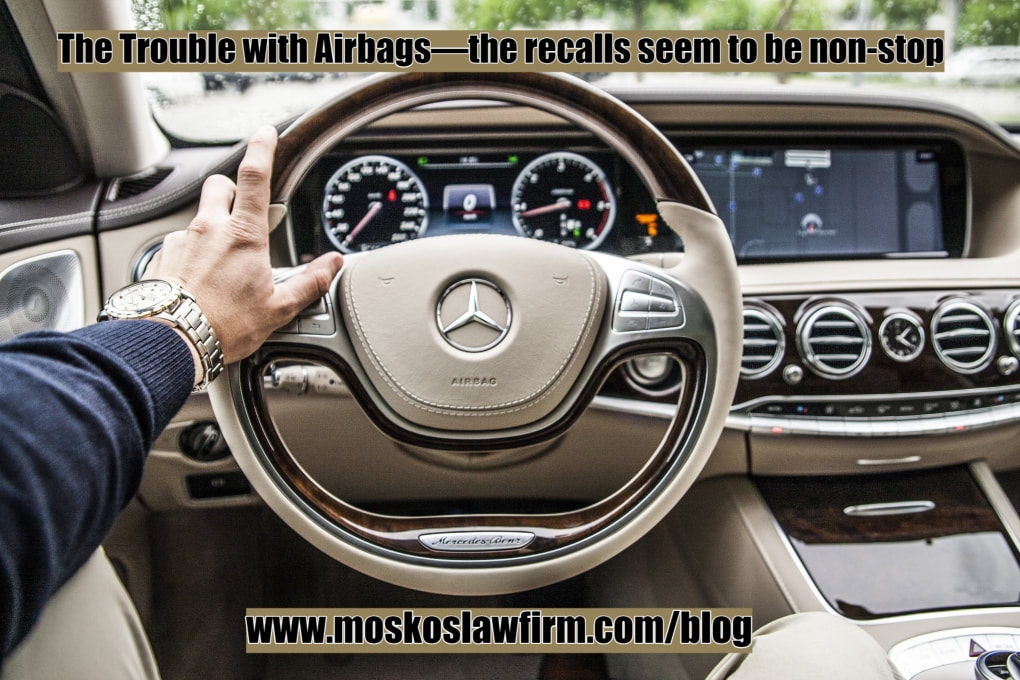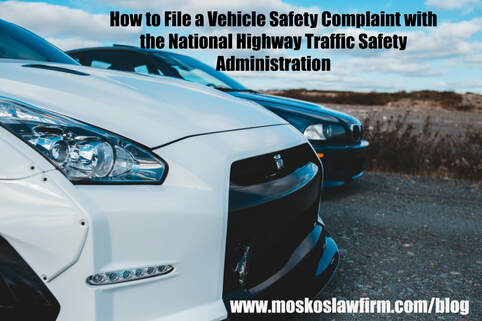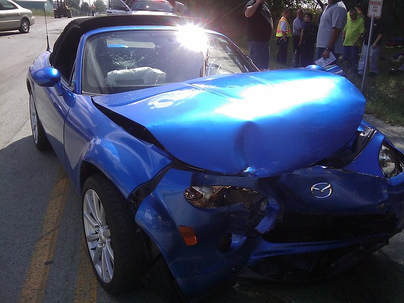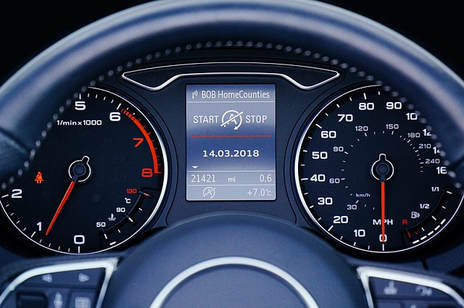|
When innovation meets the road, it is a very exciting idea that you want to join in on. The 2024 Tesla Cybertruck, with its futuristic design and promises of cutting-edge technology, was supposed to revolutionize the pickup truck market through the Tesla brand. However, in the short time since its release, there have been a series of consumer complaints and recalls that show that it might not be as amazing as you expected. Luckily, the South Carolina Lemon Laws are in place to protect consumers like you. Even with its robust appearance and advanced features, the 2024 Tesla Cybertruck has 7 official complaints filed with the NHTSA in the short time it has been on the market, making it one of the worst cars of 2024. This shows the potential reliability and safety concerns associated with this vehicle for consumers like you. The issues include electrical system failures and steering problems, which could leave you without control of your vehicle when you need it most. There are also concerns about visibility due to wiper malfunctions. One alarming report involved a steering alert that prevented the vehicle from being driven just after delivery, illustrating immediate and significant risks to driver safety. On top of the car complaints, Tesla has initiated two recalls affecting the Cybertruck that address critical safety issues that could impact drivers unexpectedly. This is more than many vehicles have in their entire life cycle. The first recall involves a trapped accelerator pedal, which could lead to unintended acceleration—a dangerous scenario on any road. The second, a systemic issue with incorrect font sizes on warning lights, might seem minor but can severely affect a driver’s ability to respond to critical alerts. Ultimately, this increases the risk of accidents. South Carolina’s Lemon Law provides you with the protection you need as a vehicle owner when you find yourself facing repeated and unresolved issues from a new vehicle that you purchased in the last three years. If your Cybertruck has persistent problems that Tesla cannot fix, you might be eligible for relief under the Lemon Law. You may be able to get a replacement vehicle or even a refund. That means you won’t find yourself left to shoulder the burden of a defective vehicle on your own. You don’t have to navigate these challenges alone. Steven Moskos is ready to help. If your experience with a 2024 Tesla Cybertruck is turning your dream into a distressing liability, it might be time to assert your rights. Contact us today to explore your options under the SC Lemon Law.
When you purchase a new car, you anticipate reliability, safety, and smooth driving. However, if you own a 2022 Chrysler Pacifica, you may have found that this celebration of a new car has turned into a series of unexpected and dangerous issues. This vehicle was once celebrated for its family-friendly features but is now one of the worst cars on the road because of consumer complaints and significant safety recalls. A Closer Look at the Car ComplaintsAccording to the NHTSA, the 2022 Chrysler Pacifica owners filed 143 complaints based on their experiences with this vehicle. They experienced issues ranging from complete power loss on highways to unpredictable braking and electrical malfunctions. Here’s what owners are facing: Electrical System FailuresThe electrical system has been notably problematic. Owners reported a total loss of vehicle control and unexpected warning messages that led to the car shutting down even when driving on the highway. This has led to multiple drivers being left in dangerous driving conditions. Braking and Speed ControlThe vehicle’s braking system and vehicle speed control, with 11 complaints, have behaved erratically. Drivers have experienced phantom braking with no obstacles present, leading to near-miss rear-end collisions. This unpredictable behavior raises questions about the reliability of the Pacifica’s safety features. Recall Details Impacting SafetyOn top of all the complaints, the 2022 Chrysler Pacifica has been issued three critical recalls affecting many of its fundamental systems. Over 67,000 vehicles were recalled due to an electrical short that could cause unexpected engine shutdowns, increasing the risk of accidents. Another recall involved improperly tightened windshield wiper arms on over 500 vehicles, potentially leading to reduced visibility in bad weather. Additionally, more than 1,000 vehicles were recalled because seats were not properly secured, heightening the risk of injury in a crash. If you are the owner of a new 2022 Pacifica that you purchased in the last three years, you need to be aware of these critical issues. They directly impact your safety and the reliability of your vehicle. Your Rights Under the SC Lemon LawIn South Carolina, the Lemon Law is designed to protect consumers from the financial and safety burdens of defective vehicles. If your 2022 Chrysler Pacifica has shown consistent and unrepaired defects, you may be entitled to compensation or a vehicle replacement. It’s important that you document all issues and seek legal advice from a South Carolina Lemon Lawyer, like me, if your vehicle’s performance and safety are compromised.
This lawfirm focuses on Lemon Law and claims associated with auto fraud. So, if you are experiencing problems with your 2022 Chrysler Pacifica, reach out for legal support to navigate the complexities of SC Lemon Law and ensure your rights are protected. Way back in 1960, Volkswagen created an ad with the slogan “We pluck the lemons; you get the plums.” The ad was about the manufacturer’s high quality when it came to inspecting cars before they left the factory and focused on an inspector’s discovery that the chrome strip on the glove compartment on one car was blemished and had to be replaced. Would that Volkswagen be considered a “lemon” in South Carolina? Under South Carolina law, a new car is considered a “lemon” when it has a manufacturing defect that affects the safety, value, or use of the vehicle. If that defect shows up within the first twelve months or 12,000 miles of a car’s purchase, whichever one comes first, then the manufacturer must fix the vehicle for free. You can’t just arbitrarily decide your vehicle is a “lemon” and return it to the dealership expecting a full refund. Whether the problem you’re having with your car fits the above criterion is something a court would have to decide.
While you’re reading this, you might be thinking, what about my 2001 car that I just bought from the used car dealership? It needs a lot of repairs, and the salesman didn’t tell me about any of this. Doesn’t that mean the car is a “lemon”? Technically, yes, the car is a “lemon”, meaning it’s a bad car, but it isn’t a “lemon” under South Carolina law because it isn’t a new car. Does that mean you have no recourse if you’ve purchased a used car? Not at all. An experienced lawyer knows laws that apply to used vehicles and can help guide you in the right direction. Just because you’ve purchased an “unofficial lemon” doesn’t necessarily mean you’re stuck with it. So, whether you’ve purchased a new “lemon” or a bad car, talking to a lawyer is your best bet. The laws involving vehicles are complicated and can be quite confusing. It just makes sense to get advice from someone who has read and understands those laws. When your business depends on reliable transportation, mechanical issues with your vehicles can cause a loss of income or even customers. When it’s a new vehicle that is not running properly, your frustration can be even worse. The lemon law states that a vehicle that does not operate correctly and the manufacturer (or an authorized agent of that manufacturer) cannot repair the vehicle within a certain amount of time, you are entitled to a replacement or a refund. In South Carolina, only vehicles that are designed to transport ten or fewer people are covered. The law also covers trucks that weigh less than 9,000 pounds when they are empty. This law pertains only to new vehicles, not used or previously leased vehicles. To be considered a lemon, the problems must show up within the the warranty period. The mechanical problem must substantially affect the vehicle’s market value, safety, or use, and it cannot be repaired within a reasonable amount of time. Under South Carolina law, a reasonable amount of time is considered to be when the vehicle is out of service by reason of repair for thirty or more days or three attempts to repair the same problem.
Business vehicles are not covered by the Lemon Law. But what is a business vehicle? Obviously, a tractor trailer rig or a piece of farm equipment are business vehicles and not covered. On the other hand, a vehicle can be owned by a business but still be covered by the Lemon Law. The issue comes down to whether the motor vehicle is normally used for personal, family, or household purposes and subject to the manufacturer's express warranty. As the business owner, you also need to be very careful about how your vehicles are driven. If the mechanical problem is caused by abuse or neglect of maintenance guidelines, your lemon law rights may be affected. Also, if you plan to alter your car in any way, such as adding a trailer hitch or roof racks, you should have an authorized dealer install the items. If the alterations are not approved or installed by the dealer, the manufacturer can claim those alterations caused the mechanical problems, and you will have a harder time proving your car is a lemon. Just remember, the more you use the vehicle in your business, the more ammunition you give the manufacturer’s lawyer to claim that the vehicle does not qualify under the lemon law. If you have problems with a vehicle, start documenting everything that is done to repair it from the very first trip to an authorized mechanic. Keep all paperwork and notes of any discussions you may have with the dealership. You will need to notify the manufacturer of the problems within the time frame, and be sure to have copies of any documents you send to anyone. You should also document lost wages for when you were unable to use your vehicle for your business. After three attempts to repair the vehicle, it may be in your best interest to hire an attorney who has experience with the lemon laws of your state. Your lawyer can advise you of the next steps you need to take to receive a refund or a replacement on your vehicle. Anyone can end up with a new car that has constant problems. A new car like this is known as a “lemon” car, and there are laws to protect consumers who may purchase one. If you have one, you may be angry and not sure what to do first. If contacting the dealer where you purchased the vehicle does not bring you the results you need, you should contact an attorney who specializes in the “lemon laws” of your state. why you Need an AttorneyJust like other professions, attorneys often specialize in certain areas of the law. When you begin your search, make sure you ask the lawyer how much experience they have with lemon laws. If they don’t have much experience, you would be better off to search for another lawyer. The laws can be confusing, and you need someone who is familiar with the law in your area to guide you through the process of getting your vehicle repaired or replaced.
To be considered a lemon, a new vehicle must have a defect that is covered by the manufacturer’s warranty that became known during a certain time frame or number of miles you have driven. Every state has different lemon laws and different timelines which is why it’s important to contact an attorney as soon as possible after you start having problems with your new car as they are best able to guide you in the process. If you are unlucky enough to purchase a new vehicle from a dealership that cannot repair your vehicle, an attorney can contact the dealer or manufacturer on your behalf. Sometimes, a letter from an attorney is enough to force the dealer or manufacturer to discuss options with you, but this isn’t always the case. Most manufacturers require you to go through non-binding arbitration first. You and your attorney will have the opportunity to present your proof of attempted repairs and the time you were without your new car. Once the arbitration board has heard your case, the manufacturer may make an offer. You and your attorney can discuss whether to accept or decline the offer. If you decide the offer is not satisfactory to you, your attorney can file a law suit against the manufacturer of your vehicle. Your attorney can offer more of the evidence you have collected in court. Always be sure to keep careful records of repairs that were completed on your vehicle and any discussions you have had with the dealer you purchased the car from. All of this will be important in helping your lemon law attorney in building a strong case for your law suit. While it may seem like this is a simple process that you can handle on your own, the complexity of lemon laws are very confusing to someone who isn’t experienced with the law. You may miss an important detail or deadline that will prevent your car from being declared a lemon and repaired or replaced. It would be best to let an experienced lemon law attorney handle the process for you so you get the best outcome for your situation. What is a Recall? When a car manufacturer discovers a safety problem on their vehicle, they start an investigation into the issue. If the problem is serious, they may even stop production of any models that could be affected. Once a solution to the issue is developed, the manufacturer issues a recall for any models that have been affected by the faulty part or programming. The manufacturer will send out notices to all owners of vehicles with a VIN (Vehicle Identification Number) that could be affected. Recalls are mandatory and must be completed by a registered dealer of that make and model of car. Recalls are free to owners. What is a Technical Service Bulletin? Manufacturers track warranty claims. When a common problem surfaces, the manufacturer will usually investigate the problem. Once the manufacturer discovers a solution, the repair procedure is posted as a technical service bulletin. These service bulletins are a good place for mechanics to start the diagnostic process when someone brings a vehicle to them with a problem. Technical service bulletins are issued for non-safety issues. They are voluntary and are not free to car owners. However, the problem may be covered under your car’s warranty, or the manufacturer may open a special warranty period for the problem. In these cases, your repairs will be free of charge. How to Find Recalls or Technical Service Bulletins
You can take your vehicle to a local dealer’s service center where they will look up your car’s vehicle identification number and determine if your vehicle has any outstanding recalls, but this may require a service appointment and may cost you. You can also find recalls and some technical service bulletins online. Many car forum sites offer this information from people who share what they have learned. You can also check the manufacturer’s website or the National Highway Transportation Safety Administration (NHTSA) website. You never know when a car accident might happen, but you can make sure you’re protected when it does thanks to safety features like airbags. Although airbags save lives, they’re not always foolproof – especially in recent years, as airbag recalls seem to permeate the news without signs of slowing down. Recently, Toyota and Subaru recalled more than 1 million vehicles with faulty airbags worldwide. Similarly, Mazda expanded its Takata airbag recall to an additional 155,000 cars. Not long ago, GM and Audi announced airbag recalls as well, with more than 100,000 cars affected. With all these car manufacturers announcing recalls, which cars are actually safe to drive? A lot of the smaller recalls, such as GM and Audi’s, affect newer models – so if you bought an Audi in recent years, it’s worth checking whether your airbag has been recalled. However, the largest recall of 2018 by Toyota and Subaru affects a lot more drivers. But don’t worry. While 1 million vehicles worldwide is a huge number to recall, keep in mind that only about 17,000 of those are in the United States. Here, the recall only covers about 17,000 Scion xA vehicles released from 2004 through 2006. Usually, you won’t have to look up for yourself whether a part of your car has been recalled because your dealer or manufacturer should contact you. But it is concerning to know that so many cars are not as safe as we thought they were. So why are all of these airbag recalls happening all of a sudden? There’s actually a simple explanation. The recalled airbags all come from a company called Takata, which provides airbags for multiple manufacturers. The issue at hand is specific to Takata’s airbags – basically, the ammonium nitrate used in the airbags becomes unstable and can cause them to suddenly inflate, launching metal shrapnel in the process. At least fifteen people have died because of this airbag issue in the United States, so it’s a serious issue. Takata’s airbags first started getting recalled about ten years ago, and regulators even launched an investigation. All in all, the recalls have affected nineteen manufacturers and 37 million vehicles across the world. If you haven’t checked already, now is a good time to make sure your car isn’t among them.
How to file a Vehicle Safety Complaint with the National Highway Traffic Safety Administration1/7/2019
If something isn’t working correctly in your vehicle, it’s your responsibility to report it to the proper authorities. That’s how a lot of recalls end up happening – enough consumers complain and a company is forced to correct the problem. It’s actually a lot easier than you might think – all you have to do is file a Vehicle Safety Complaint with the National Highway Traffic Safety Administration at this website. The process is simple, and all you need to have on hand is your email address, Vehicle Identification Number, Make, Model, Year, and documentation related to the complaint like photos or a police report. It takes about five minutes to fill out the form on the site. The NHTSA insists that all complaints are reviewed; however, only some will lead to an investigation and potential recalls. The review process can take a long time, but you should be notified if there is a recall based on your complaint. People whose cars have had a recall due to Takata airbag safety issues should make sure to note that on their complaint, as the NHTSA already has an open investigation. What counts as a valid vehicle safety complaint? Faulty airbags, brakes that don’t function as intended, widespread ignition issues, and all kinds of other things that go wrong. You may not even realize that your car’s problem is a safety complaint, which is why it’s good to fill out the form. Note that the NHTSA will never share your personal information with the public after you file a complaint. It is added to a public database, but all of your personal information is removed first.
It’s important to notify the NHTSA if you think there’s something wrong with your car, like an airbag issue that could potentially be dangerous. If the NHTSA receives similar reports from multiple people about the same product, they can open an investigation to determine whether the defect should result in a recall. If you don’t report car safety issues, then the NHTSA can’t do anything to make sure car manufacturers are held responsible.
I was a guest on the podcast by The Car Chick (which is all about car knowledge for women and smart men) recently where we talked about the lemon law, what it means, and more. You can find more podcasts and much more information at www.whoisthecarchick.com.
CarFax is the leading company in used car record tracking and is often publicized as a promotional tool to prove the soundness of a used vehicle. While CarFax claims to compile over 100,000 sources to document each car's history, you should consider it a tool rather than a final answer when you're in the process of buying a used vehicle. Importance CarFax compiles records from a wide range of sources that track Vehicle Identification Numbers (VIN), odometer readings, and accidents among other statistics. That means you'll have access to some title transfers, odometer readings, reported accidents, and manufacturer recalls concerning the vehicle in question. Do You Need More Information? You should have any used vehicle inspected and driven by a trusted mechanic before you buy. It's also a good idea to have the seller provide you with a written statement outlining the condition of the car and detailing any damages it may have. What Might be Missed? A CarFax report is only as good as its sources, and therein lies the problem. If a vehicle was in an accident that wasn't reported to police, it won't show up. Furthermore, if it was reported and the police department doesn’t provide reports to Carfax, you won't get the accident information. If the vehicle was in an accident or flood and was repaired by a mechanic or body shop that doesn't report to CarFax, you won't learn that information. In addition, insurance companies do not provide reports to Carfax. These are only a few examples, so if you have a question about your vehicle's condition, ask. Why Use CarFax if not All Information is Reported?
Although CarFax may not cover every angle of a vehicle history, it is a valuable tool when buying a used car. Here are some key benefits you'll find on a CarFax report:
What Can You do if You have an Issue? CarFax guarantees a clean title on its report, but make sure you read the fine print. Register the car with CarFax if you buy it and be aware the guarantee is very specific. If you suspect you've purchased a car that's been damaged without disclosure, it's important to get legal representation. Consumer laws are made to protect unsuspecting car buyers from fraud, and you may have a valid case. Reprinted with permission from PublicJustice.net
It has not been a good year for auto safety. More than 60 million vehicles were recalled in 2014—that’s more than twice the previous record. And every day it seemed there was another story of a tragic death or life-changing injury that could have been prevented if only some car manufacturer had come clean about a defect in its cars, or the National Highway Traffic Safety Administration—the federal agency charged with protecting drivers—had kept better tabs on car makers, or court records evidencing a dangerous defect had been made public. Unfortunately, it doesn’t appear to be getting better. Since this post in late October, reports have continued to pour in from Chrysler owners about power system-related problems (technically, the issue seems to be with the Totally Integrated Power Module). And the Center for Auto Safety now thinks that there’s been at least one death. Although, by law, NHTSA was required to decide by Dec. 19 whether to open an investigation, so far, there’s been no word from the agency. And just last Tuesday, a court presiding over a lawsuit against Chrysler denied our motion—filed on the Center’s behalf—to unseal documents filed in the case. The court held that even documents that “do not appear to contain significant technical information” (emphasis mine) and therefore are not likely to qualify as trade secrets—for example, emails between Chrysler employees—may remain sealed. Because the lawsuit is still ongoing, the court reasoned, these documents, produced early on in litigation, may not provide a complete picture of the safety of Chrysler cars. But the documents are Chrysler’s. If the company thinks more documents need to be released to provide a full picture of what’s going on, it can simply release them. Chrysler, of course, isn’t doing that. Rather than providing a complete picture, the company seems to be doing its best to ensure the public has no picture at all. The court was also worried that if the documents were unsealed, an “offhand remark in an email” could become a “gotcha quote in headlines.” This is a reasonable concern. But it’s one the law has already weighed: Courts have repeatedly held that the public right of access to court records is so important that it trumps any generalized concerns about corporate embarrassment. That’s why there is no “offhand remark” exception to the rule that court records are presumptively public. Nor is there any exception that allows a company to keep documents secret just because they may be incomplete, or inarticulate, or, yes, even embarrassing. Court records should not be sealed simply because releasing them might require a corporation to do damage control. If you think this all sounds eerily familiar, you’re not wrong. Earlier this year, GM recalled millions of cars—yes, millions—because of an ignition switch defect that, in some circumstances, causes the air bags not to deploy. We don’t yet know how many people died because of this defect, let alone how many more were injured, but we do know it was bad: According to Reuters, at least 74 people have been killed because their air bags did not inflate due to the defect. That’s bad enough. What makes it worse is that it didn’t have to be this way. GM knew about the problem for more than a decade and didn’t say anything. How could this happen? Did GM just hide the fact that a defect in its cars was probably killing people? Well, yes. But it had help. According to a recent report by the staff of the (Republican-led) House Committee on Energy and Commerce, NHTSA fell down on the job: Apparently, the agency had all the information it needed to identify the defect years before the recall, but it failed to connect the dots—a failure that, in the Committee’s view, was simply “inexcusable.” NHTSA, the report concluded, “lacked the focus and rigor expected of a federal safety regulator.” Perhaps even more damning, the Committee found no reason to believe that NHTSA has learned from its mistakes, “no evidence” that anything at the agency has changed. It was not just NHTSA, though, that kept GM’s secret. The courts helped too. People have been suing GM since at least 2005 for injuries—and deaths—resulting from the ignition switch defect. But the company quietly settled these cases, and the courts quietly entered protective orders, keeping the records (and the settlements) secret—despite the fact that court records are presumptively public documents. If these records had been made public, we would have known of the problem years earlier. What you don’t know can, in fact, hurt you. Right now, the same story is playing out with Takata—the company that makes air bags that, apparently, sometimes explode. So far, over 19 million cars have been recalled for fear that rather than protect passengers, their air bags will instead kill them. Indeed, several people have already died, and many more have been injured. But like the GM ignition defect, it appears this too could have been prevented. The New York Times has reported that Takata knew of the problem for years but didn’t alert the public. And neither did NHTSA. Although the agency opened an investigation in 2009, the inquiry went nowhere. Takata hired a former NHTSA official to represent it, and NHTSA promptly closed the investigation before the company had even submitted all the relevant documents. It was years before the agency did anything further. As in the GM case, there were lawsuits over the years. But, like the GM suits, they were settled quickly and confidentially. Will Chrysler become the next GM or Takata? We don’t know yet. But we do know that NHTSA blew through the deadline to decide whether to open an investigation. And now the court overseeing a lawsuit against Chrysler has sealed the records. Sure sounds familiar. |
Archives
April 2024
Categories
All
|







 RSS Feed
RSS Feed